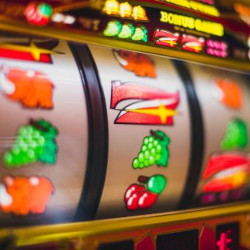
Dutch gambling regulator Kansspelautoriteit will implement stricter actions to battle against illegal gambling machines. The announcement came after reports of an increased number of unlicensed gambling halls.
Business operators who fail to meet the rigorous Dutch standards are promptly reported to the authorities, per the KSA’s regulations. Operators have two weeks to rectify breaches discovered by the KSA.
A company must get two licenses if it wants to put a slot machine in a restaurant or casino in the Netherlands. Companies who wish to have such items must obtain a presence permit from the municipality where they intend to operate and apply for an operating license from the KSA. According to online marketing experts, the KSA makes it very explicit on its permits that only businesses with municipal presence permits may have gambling machines.
KSA Acts on Unlicensed Gambling Halls
According to the KSA, there are several essential reasons why presence permits are so necessary. A policy to reduce the adverse effects of gambling and to prohibit underage users of the machine is one example of a requirement that permit applicants must meet.
Municipalities verify the applicants’ and their leadership’s honesty and physical location before approving permits.
Businesses that provide gambling services without a license from the local government may not have the necessary safeguards to protect their customers. This is an intolerable danger, says the KSA.
Strict Monitoring of Gambling Machine Operators
This led the Dutch regulator to pledge to monitor gambling machine operators’ compliance and undertake enforcement where necessary.
This follows the regulator’s recent action against two operators who remain anonymous for breaking the rules against using role models in advertising. In the Netherlands, it is absolutely forbidden to advertise products or services that might attract kids or young adults and encourage them to gamble.
When it comes to underage players, a new study found that many unlicensed operators in the Netherlands are widely accessible to younger audiences. The NOGA and VNLOK have voiced their desire for the Dutch regulator to respond swiftly and decisively to these findings.
New Responsible Gaming Policy
 According to KSA, their new Responsible Gaming Policy will go into effect on June 3, and the remaining player intervention responsibilities will be fulfilled in October 2024. KSA announced earlier this month that the modified policy would be postponed from May 20 to June 3. This holdup was caused by the authority having to prolong its “response period” to accommodate the numerous comments received from licensed operators and stakeholders of the Remote Gambling Act (KOA) about the planned adjustments.
According to KSA, their new Responsible Gaming Policy will go into effect on June 3, and the remaining player intervention responsibilities will be fulfilled in October 2024. KSA announced earlier this month that the modified policy would be postponed from May 20 to June 3. This holdup was caused by the authority having to prolong its “response period” to accommodate the numerous comments received from licensed operators and stakeholders of the Remote Gambling Act (KOA) about the planned adjustments.
The authority granted an extension last December to provide stakeholders in the gaming sector more time to comment on the proposed amendments to the Responsible Gaming Policy. These changes include a more vital obligation of care for online providers towards their players. Thus, it showed the importance of betting reports for bookies. That way, sportsbook operators can monitor problem gamblers.
The authorities have kept stakeholders informed and announced two definite deadlines for providers to execute the policy’s provisions. Most of the revised guidelines were published in the Government Gazette on June 3.
Do you want to start a sportsbook? We recommend using a pay per head, such as PricePerPlayer.com pay per head services.






Recent Comments